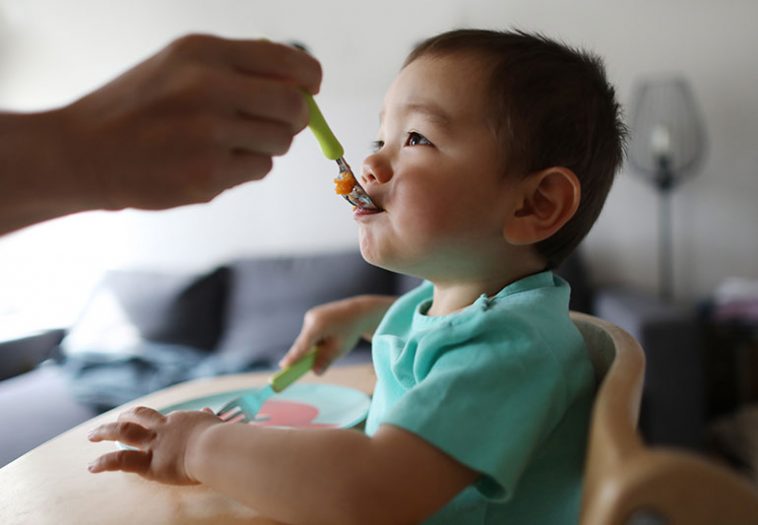Are you the parent of a baby who is ready to start the process of transitioning from breast milk or formula to solid foods? If so, then there are certain signs that can help you determine when this transition should start. Here are 7 signs that your baby is ready to start eating solid foods.
1. Baby is at least 6 months old – When it comes to solid foods, the American Academy of Pediatrics recommends waiting until a baby is at least six months old before beginning the process. Premature babies should wait a bit longer, generally to the 8-month mark.
2. Baby has good head and neck control – Before your baby can eat solid foods, they should have the ability to sit up and hold their head steady while in a sitting position. If they are having trouble controlling their head and neck movements, then they are not ready to begin the transition.
3. Baby is able to move food from the front to the back of the mouth – Watch your baby during meals. If they are having trouble moving food from the front of the mouth to the back or if they are choking on the food, then they are not ready to start solids.
4. Baby is showing interest in foods – If your baby is watching you eat and trying to reach for the food, then they are showing a strong interest in starting to eat solids.
5. Baby’s weight is healthy – Make sure that your baby’s weight is at a healthy level or slightly above average before starting to feed them solid foods.
6. Baby can swallow – Babies should be able to swallow food before they start eating solid foods. If they are having trouble swallowing and showing signs of distress, then solid foods should be avoided.
7. Baby is ready to transition off of breast milk or formula – Breast milk and formula are still essential at this age, but if your baby is ready to transition off of the formula and onto solid foods, then they are ready to start eating solids.
If you are a parent to a baby who is ready to start eating solid foods, watching out for these signs can be helpful in determining when this transition should begin. Of course, it is important to always consult your doctor or healthcare provider before starting your baby on any type of solid food diet.
When it comes to introducing solids, the transition should be done gradually. Start with small amounts and offer a variety of foods over time. As your baby transitions to solid foods, make sure to watch for signs of any intolerances or allergies. The best way to make sure that your baby is getting the nutrition that they need is to speak to your doctor or healthcare provider. They will be able to provide you with the information and advice that you need to ensure that your baby is on the right track.




